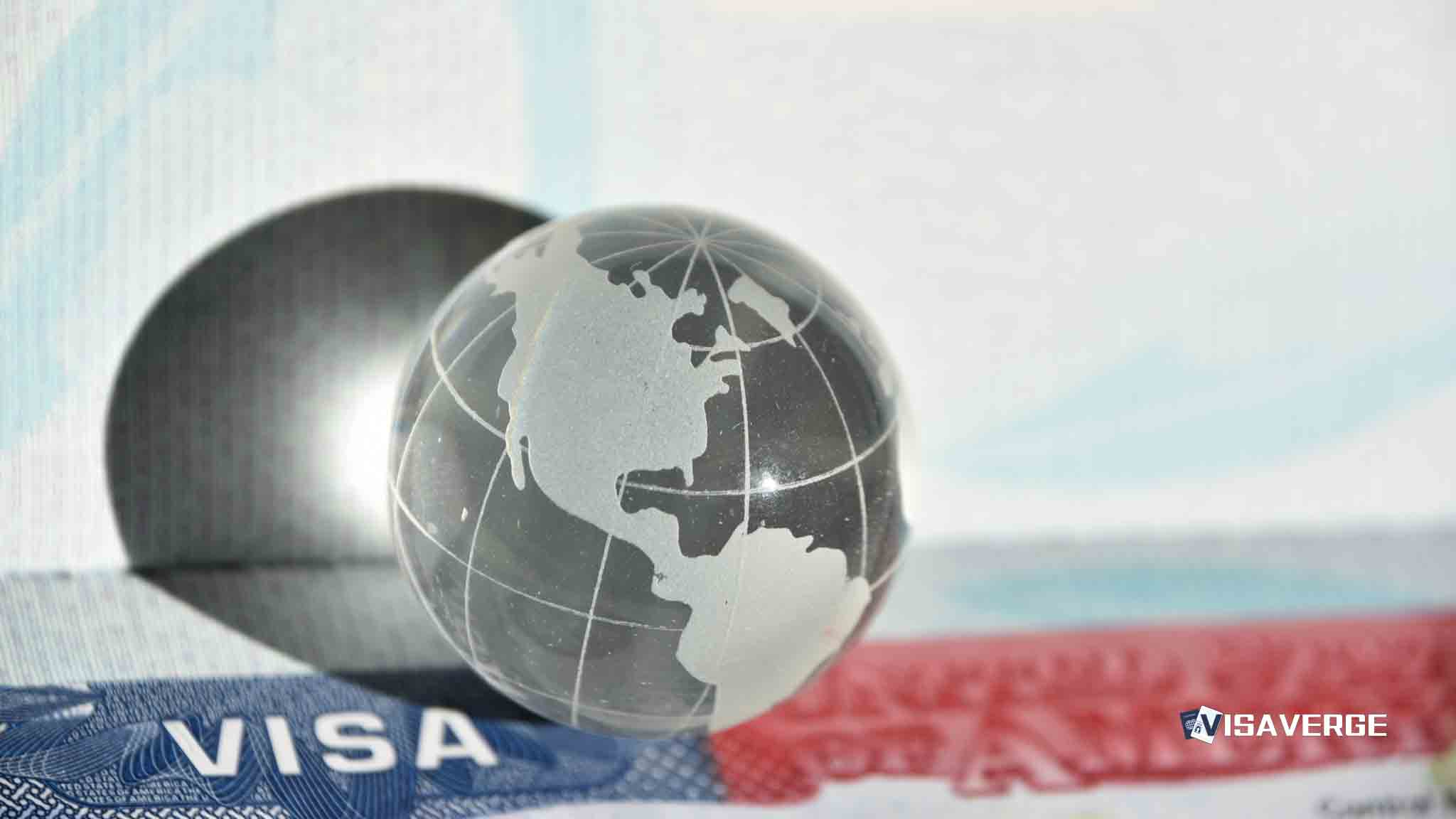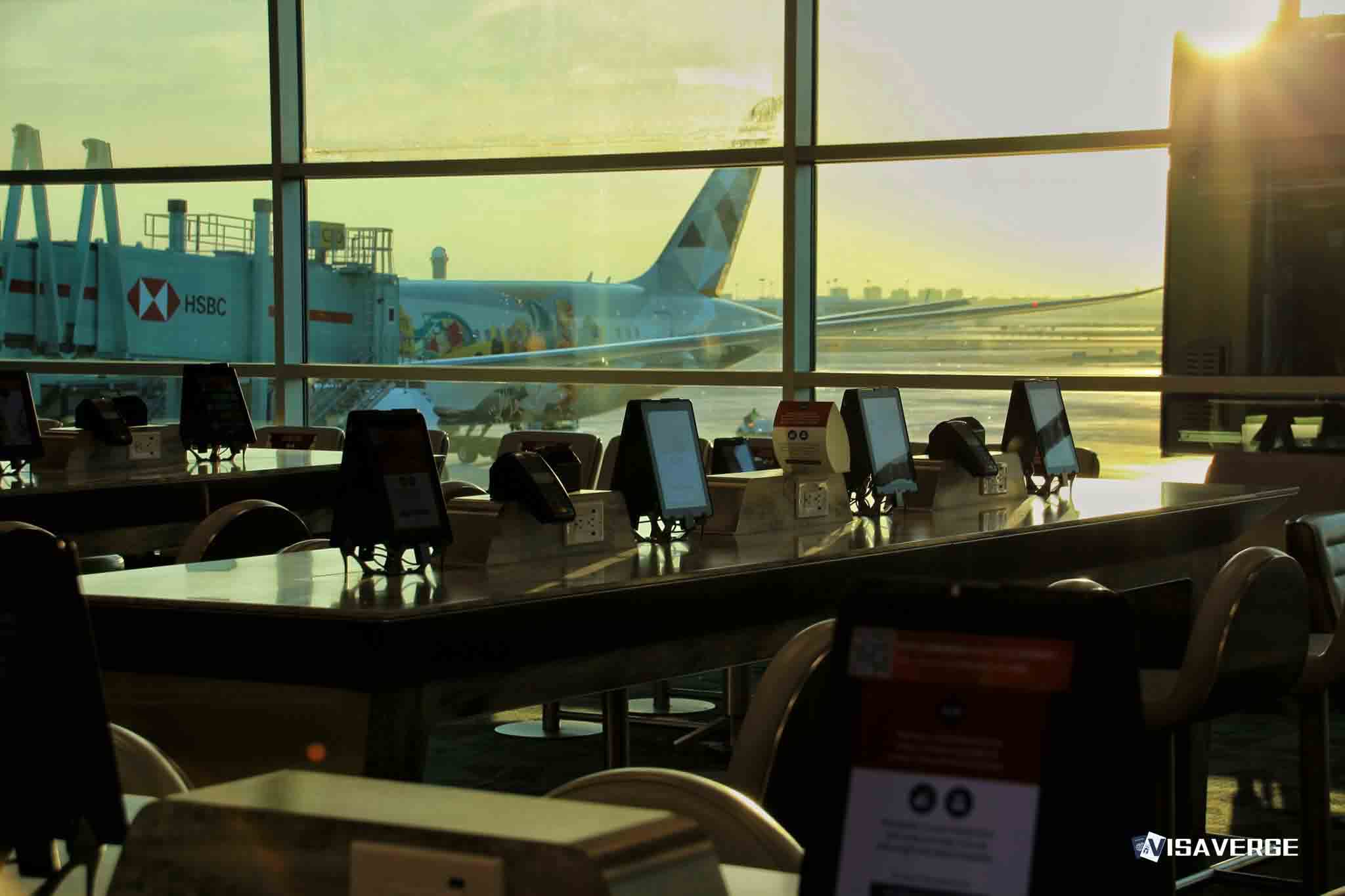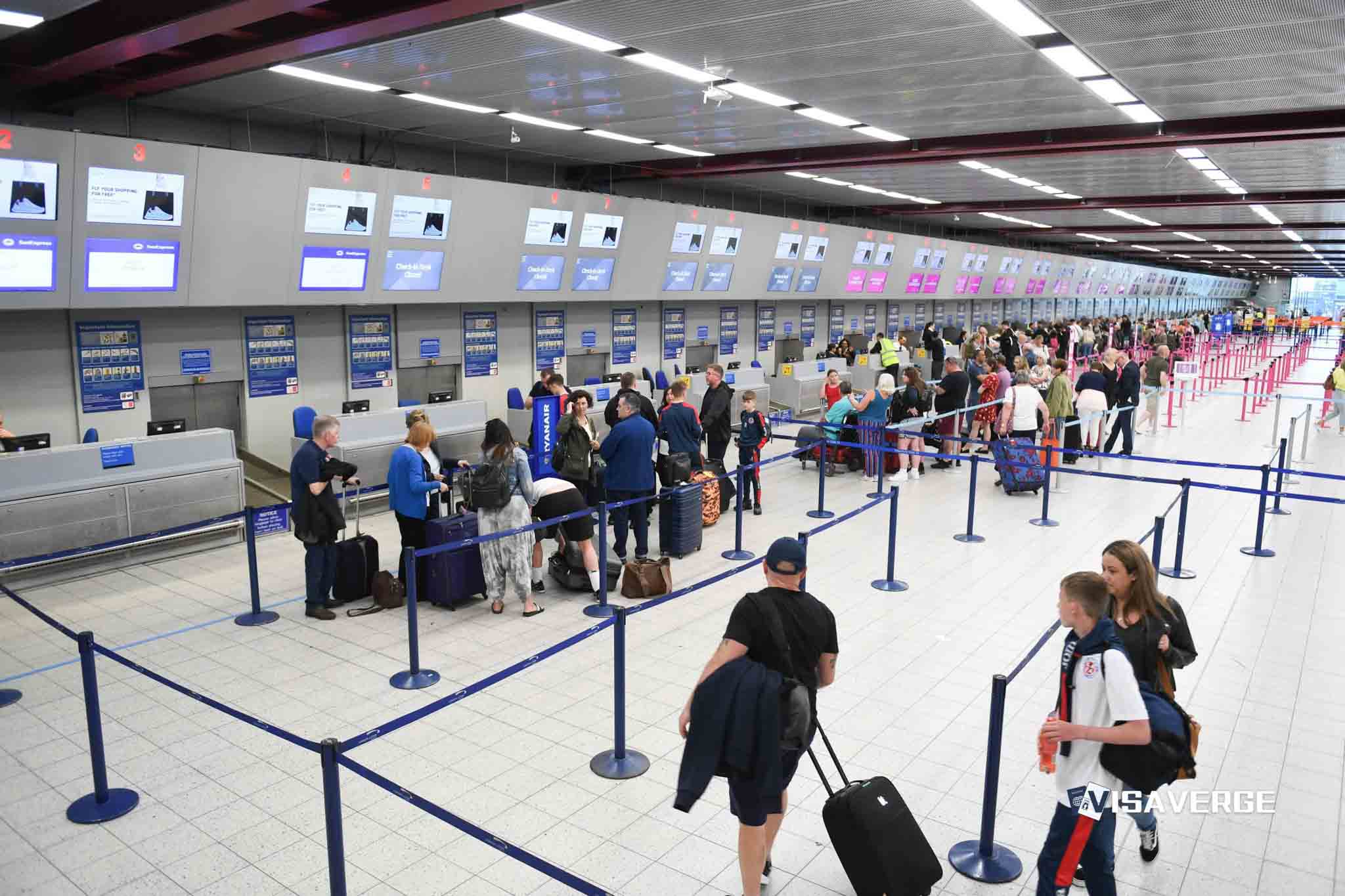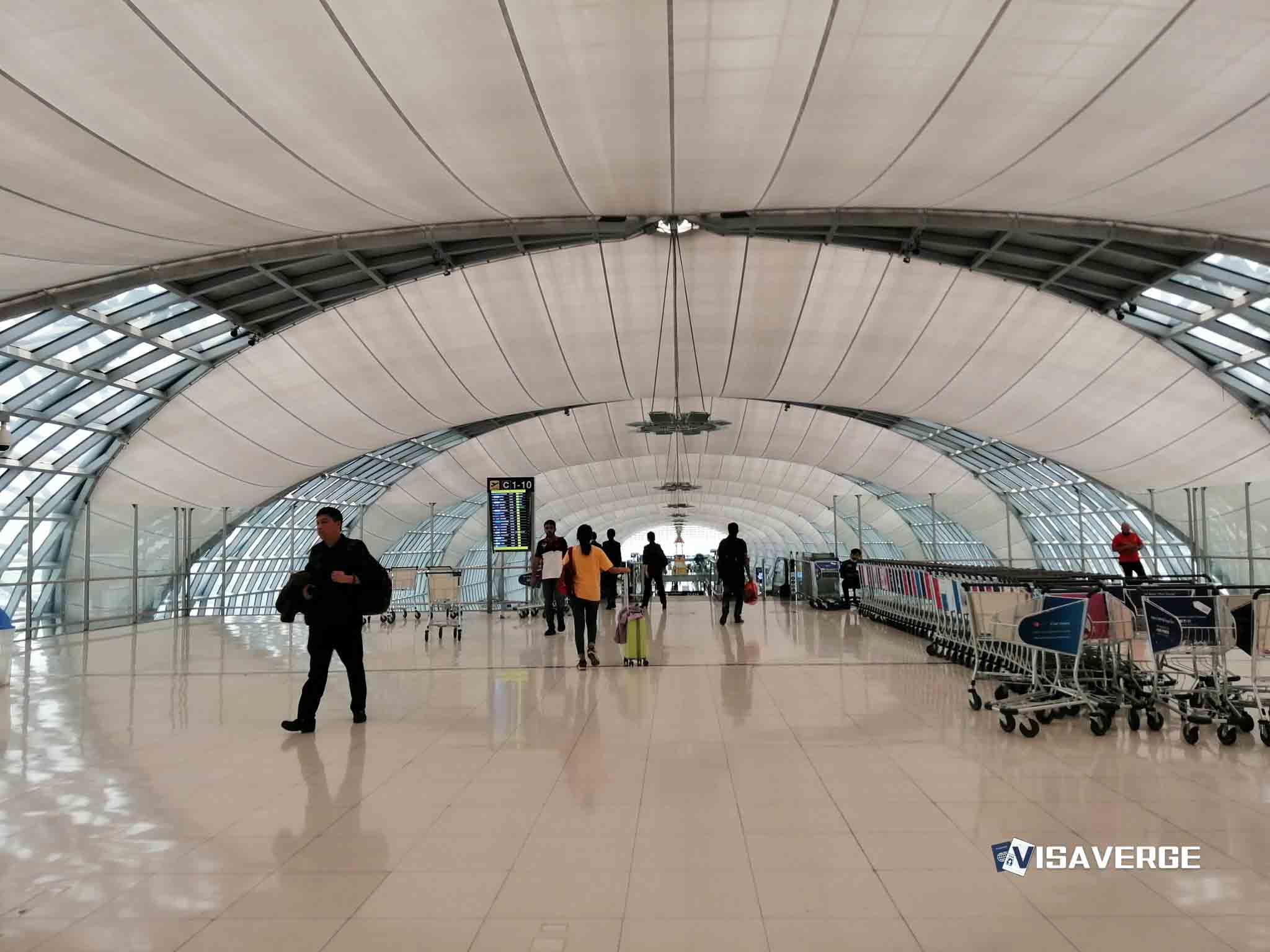The U.S. Department of State has confirmed the full country list for the Diversity Visa Lottery covering DV-2026, and the picture is clear: most of the world remains eligible to apply, with a focused list of not eligible countries excluded due to high recent immigration to the United States. The update matters for millions who plan to enter the next round of the DV program. It sets who can apply, who cannot, and what limited exceptions may still allow a path forward.
According to analysis by VisaVerge.com, the DV-2026 country map looks similar to past years, with a few notable clarifications around territories and chargeability rules.

Policy snapshot for DV-2026
The Diversity Visa program is open to natives of countries with historically lower levels of U.S. immigration. For DV-2026, the U.S. has named a defined list of not eligible countries and confirmed all others as eligible countries. The Department of State emphasizes that the list is current as of October 2025 and applies to entries for the DV-2026 round.
If you were born in a not eligible country, you might still qualify under a narrow exception tied to your spouse’s or, in limited cases, your parents’ country of birth—often called chargeability. This exception prevents families from being blocked when a spouse or parent is from an eligible country.
One point that often confuses entrants: treatment of territories. For DV-2026, the Department of State confirms that natives of Macau SAR and Taiwan are eligible. However, China (including Hong Kong SAR) remains not eligible.
The guidance below reflects the official, current lists. The most authoritative reference for applicants remains the State Department’s published DV instructions, found on the Department’s site at the official page for DV guidance and eligibility details: U.S. Department of State DV Instructions.
Countries not eligible for DV-2026
Natives of the following countries are listed as not eligible for DV-2026 due to high rates of recent immigration to the United States:
- Bangladesh
- Brazil
- Canada
- China (including Hong Kong SAR; Macau SAR and Taiwan are eligible)
- Colombia
- Cuba
- Dominican Republic
- El Salvador
- Haiti
- Honduras
- India
- Jamaica
- Mexico
- Nigeria
- Pakistan
- Philippines
- South Korea (Republic of Korea)
- Venezuela
- Vietnam
Note: Natives of Macau SAR and Taiwan are eligible.
Complete country eligibility list (DV-2026)
The following eligible-country lists are presented by region and follow the official DV-2026 lineup.
Africa
- Algeria, Angola, Benin, Botswana, Burkina Faso, Burundi, Cameroon, Cabo Verde, Central African Republic, Chad, Comoros, Congo, Democratic Republic of the Congo, Cote D’Ivoire (Ivory Coast), Djibouti, Egypt, Equatorial Guinea, Eritrea, Eswatini, Ethiopia, Gabon, Gambia, Ghana, Guinea, Guinea-Bissau, Kenya, Lesotho, Liberia, Libya, Madagascar, Malawi, Mali, Mauritania, Mauritius, Morocco, Mozambique, Namibia, Niger, Rwanda, Sao Tome and Principe, Senegal, Seychelles, Sierra Leone, Somalia, South Africa, South Sudan, Sudan, Tanzania, Togo, Tunisia, Uganda, Zambia, Zimbabwe
Note: Nigeria is NOT eligible.
Asia
Eligible:
– Afghanistan, Bahrain, Bhutan, Brunei, Burma (Myanmar), Cambodia, Indonesia, Iran, Iraq, Israel, Japan, Jordan, Kuwait, Laos, Lebanon, Malaysia, Maldives, Mongolia, Nepal, North Korea, Oman, Qatar, Saudi Arabia, Singapore, Sri Lanka, Syria, Taiwan, Thailand, Timor-Leste, United Arab Emirates, Yemen
Not eligible (Asia):
– Bangladesh, China (including Hong Kong SAR), India, Pakistan, South Korea, Philippines, Vietnam.
Europe
- Albania, Andorra, Armenia, Austria, Azerbaijan, Belarus, Belgium, Bosnia and Herzegovina, Bulgaria, Croatia, Cyprus, Czech Republic, Denmark (including components and dependent areas overseas), Estonia, Finland, France (including components and dependent areas overseas), Georgia, Germany, Great Britain (United Kingdom, including components and dependent areas overseas), Greece, Hungary, Iceland, Ireland, Italy, Kazakhstan, Kosovo, Kyrgyzstan, Latvia, Liechtenstein, Lithuania, Luxembourg, Macau SAR (chargeable to Portugal), North Macedonia, Malta, Moldova, Monaco, Montenegro, Netherlands (including components and dependent areas overseas), Northern Ireland, Norway (including components and dependent areas overseas), Poland, Portugal (including components and dependent areas overseas), Romania, Russia, San Marino, Serbia, Slovakia, Slovenia, Spain, Sweden, Switzerland, Tajikistan, Turkey, Turkmenistan, Ukraine, Uzbekistan, Vatican City
North America
- The Bahamas
Not eligible in North America:
– Canada, Mexico.
Oceania
- Australia (including components and dependent areas overseas), Fiji, Kiribati, Marshall Islands, Micronesia (Federated States of), Nauru, New Zealand (including components and dependent areas overseas), Palau, Papua New Guinea, Samoa, Solomon Islands, Tonga, Tuvalu, Vanuatu
South America, Central America, and the Caribbean
Eligible:
– Antigua and Barbuda, Argentina, Barbados, Belize, Bolivia, Chile, Costa Rica, Dominica, Ecuador, Grenada, Guatemala, Guyana, Nicaragua, Panama, Paraguay, Peru, Saint Kitts and Nevis, Saint Lucia, Saint Vincent and the Grenadines, Suriname, Trinidad and Tobago, Uruguay
Not eligible in this region:
– Brazil, Colombia, Cuba, Dominican Republic, El Salvador, Haiti, Honduras, Jamaica, Mexico, Venezuela.
Practical notes for applicants
- Country of birth controls eligibility for DV-2026. Citizenship, residence, or passport country does not change this rule. If you were born in an eligible country, you can enter—assuming you meet all other program rules.
- If you were born in a not eligible country, a narrow exception might still let you qualify by charging your entry to your spouse’s country of birth if it is on the eligible countries list.
- In limited cases, you can charge to a parent’s country of birth if neither parent was born in or legally resident in your own birth country at the time.
- Territories are handled carefully. For DV-2026: Macau SAR and Taiwan are eligible, while China (including Hong Kong SAR) is not. This is a common source of confusion for first-time entrants and mixed-nationality families.
- Regional grouping does not change your odds by itself; it simply reflects where the Department of State counts your country for the program’s region-based structure.
- DV-2026 does not change the standard education or work experience rules of the program. Always confirm details in the State Department’s DV pages before you prepare an entry.
- When relying on a spouse’s or parent’s country for chargeability, plan to produce supporting documentation (marriage and birth records). Errors in naming your country of birth or claiming chargeability can lead to refusal later, even if selected.
Impact on applicants and families
- The DV program affects many households where parents were born in different countries or where children were born abroad due to work or study.
- Example: A couple where one partner was born in India (not eligible) and the other in Nepal (eligible) may still enter DV-2026 by charging to Nepal, provided they include each other correctly on the entry as spouses.
- Another example: A person born in Hong Kong SAR cannot qualify through Hong Kong for DV-2026, but may qualify through an eligible spouse or—under limited parent rules—through a parent’s birth country if conditions meet the Department’s chargeability guidance.
- Applicants from countries newly added to the not eligible group often feel frustrated. The rule is mechanical: once a country sends a high number of immigrants to the U.S. over a recent period, its natives are not eligible for that DV cycle. The rule is not a judgment of individuals; it is designed to preserve diversity in the immigrant pool.
Critical reminder: Treat the official DV instructions as your source of truth. Websites and social media may repost lists with mistakes or outdated entries. The Department of State updates the DV instructions, including any late clarifications.
For the most authoritative and up-to-date guidance, consult the State Department’s DV instructions page: U.S. Department of State DV Instructions.
This Article in a Nutshell
The U.S. Department of State published the official DV-2026 country lists (current as of October 2025). Most countries remain eligible, while a set of countries with high recent immigration are excluded; notable exclusions include India, China (including Hong Kong SAR), Mexico, Nigeria, Brazil, and several Caribbean and Latin American countries. The guidance clarifies territory treatment: Macau SAR and Taiwan are eligible, while China (including Hong Kong SAR) remains not eligible. Applicants born in ineligible countries may still qualify via chargeability to a spouse’s birth country or, in limited circumstances, a parent’s birth country. Country of birth controls eligibility, and applicants must follow the State Department’s DV instructions and provide supporting documentation when claiming exceptions.






